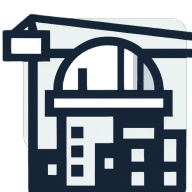How to Build Strong Relationships With Construction Suppliers
Navigating the complexities of supplier relationships in construction can make or break project success. This article delves into expert strategies for forging robust partnerships with suppliers, ensuring a seamless supply chain and project efficiency. From prioritizing long-term agreements to fostering transparent communication, learn the key steps to enhance collaboration and drive mutual growth.
- Prioritize Long-Term Partnerships
- Establish Long-Term Agreements
- Agree to Work with Specific Suppliers
- Encourage Open Communication
- Place Standing Material Orders
- Implement the Triple-P Approach
- Host Quarterly Feedback Sessions
- Establish Open Lines of Communication
- Share Project Timelines in Advance
- Organize Regular Supplier Meetings
- Hold Annual Planning Meetings
- Foster Transparent Communication
- Create a Supplier Newsletter
Prioritize Long-Term Partnerships
Building and maintaining strong relationships with suppliers and vendors is crucial in the roofing and construction industry. At C.D. Roofing & Construction Ltd., we prioritize long-term partnerships built on trust, reliability, and mutual benefit. A well-maintained supplier relationship ensures we get high-quality materials, competitive pricing, and priority service—especially during peak seasons or supply shortages.
Key Approach to Strong Supplier Relationships
1. Consistency & Reliability - We establish predictable order volumes and honor our commitments, which helps suppliers manage inventory and prioritize our needs.
2. Transparent Communication - Open and honest discussions about material needs, timelines, and pricing prevent misunderstandings and create a smoother workflow.
3. Prompt Payments & Fair Negotiation - Paying on time strengthens trust and often leads to better terms, discounts, or first access to new products.
4. Long-Term Perspective - We view suppliers as strategic partners rather than just vendors, fostering loyalty and mutual success.
One Practice That Strengthened a Key Partnership
A few years ago, we faced a major material shortage during a high-demand period. Because we had consistently prioritized one of our key suppliers—BP Shingles—with steady orders and clear communication, they gave us priority access to stock when others were struggling to source materials. This allowed us to continue roofing projects without delays, giving us a competitive edge in the market.
Advice for Other Contractors
- Invest in relationships before you need favors. Suppliers remember loyal customers during tough times.
- Meet face-to-face when possible. In-person meetings build stronger connections than emails or calls alone.
- Be flexible and solution-oriented. If supply issues arise, work with your vendor rather than against them to find alternatives.
Strong supplier relationships don’t just benefit pricing—they ensure quality, efficiency, and business continuity.
Establish Long-Term Agreements
We build strong relationships with suppliers through clear communication, reliability, and mutual respect. One practice that's worked well is establishing long-term agreements, like our partnership with a local sawmill for a consistent lumber supply. By committing to regular orders, we ensure reliable materials and offer the supplier predictable business, strengthening our partnership.

Agree to Work with Specific Suppliers
I think striking agreements and giving precedence to a partner goes a long way. I agree to always work with one specific supplier for glass, for example. They, in turn, agree to give me first pick or otherwise prioritize my orders and needs. It benefits us both, and it lends itself to creating a long, sustainable partnership that ultimately helps both businesses last and thrive. During COVID, supply was a huge problem, but if you have a long-term relationship, you get the lumber before someone else does, you know?

Encourage Open Communication
Fostering mutually beneficial partnerships in our industry can be challenging in a competitive market. We try to do a few things to help cultivate our relationships with our suppliers and trades. We encourage open communication: Regular and transparent dialog ensures that our collaborative team can address issues in a timely and informed manner. If challenges occur such as lead times or scheduling, we make sure that all stakeholders have a mutual understanding of how these changes affect the final result. Problem-solving and group input for all parties involved lead to real solutions that everyone can then plan for with their own tasks moving forward. We pay our partners on time: Paying our trades and consultants on time seems simple, however on larger projects when managing invoices on top of all the other tasks at hand, this can get missed. By taking care of our partners and ensuring they are getting paid on time, they are more responsive to us for future commitments. They know they can count on us for the thing that means most to them at the end of the day. We are reliable: By showing our team that we can be counted on for all things we commit to, we build trust with our partners. This creates a deeper bond and has shown to encourage more effort on their part and willingness to go the extra mile when we need them to. It's a win-win.

Place Standing Material Orders
The best way we've strengthened these relationships is by placing standing material orders, even when we don't need supplies immediately. This helps vendors forecast demand more accurately, which means fewer delays and better pricing for us. It has also put us in a better position when materials become scarce since suppliers prioritize clients who give them consistency.
This approach has paid off in both cost savings and reliability. We've seen price fluctuations reduced by up to 15% because vendors know they can count on repeat business. When supply chain issues hit, we were still getting deliveries while others had to wait. Strong relationships come from making things easier on both sides, and giving suppliers more predictability has kept us ahead of potential shortages.

Implement the Triple-P Approach
Through years of managing multiple renovation projects simultaneously, I've developed a systematic approach to building and maintaining these vital partnerships.
The cornerstone of my relationship-building strategy is what I call the "Triple-P Approach": Prompt Payment, Professional Communication, and Project Pipeline. I've found that consistently paying contractors and suppliers within 24-48 hours of work completion builds incredible trust and loyalty. For instance, one of my most reliable contractors now prioritizes our projects because they know they'll never have to chase payments or deal with payment delays.
Clear communication has been game changing in maintaining these relationships. I implemented a weekly check-in system with our core contractors, even when we don't have active projects. During these brief calls, we discuss upcoming projects, potential challenges, and market conditions. This regular dialogue has helped us avoid misunderstandings and allows our vendors to better plan their resources. For example, during recent material shortages, our suppliers gave us advance notice about price increases and availability issues, allowing us to adjust our project timelines and budgets proactively.
What's particularly effective is our commitment to providing a consistent workflow. I share our quarterly project pipeline with key contractors, helping them plan their schedules and crews more effectively. This transparency has resulted in better pricing and increased dedication to our projects. Recently, when we needed emergency repairs on a property, our primary contractor rearranged their schedule to accommodate us because of our longstanding relationship.

Host Quarterly Feedback Sessions
Building strong relationships with suppliers and vendors in the construction industry starts with a genuine commitment to understanding their priorities. I make it a point to treat vendors as partners rather than transactional entities, focusing on shared goals like consistent quality, reliability, and long-term success. Sharing forecasts, timelines, and challenges creates an environment of trust, where both sides can plan effectively and deliver on their promises. One particularly effective practice is hosting quarterly feedback sessions where we sit down with key suppliers to review past projects and discuss improvements. During these meetings, we address any pain points they might be experiencing in working with us. This adjustment strengthened the partnership and improved our overall efficiency. These sessions allow us to approach challenges collaboratively, ensuring both sides feel heard and valued, which leads to stronger, more dependable relationships.

Establish Open Lines of Communication
Building strong relationships with suppliers and vendors in the construction industry hinges on effective communication, trust, and shared goals. Establishing open lines of communication through regular meetings fosters alignment on expectations and project progress. Additionally, understanding their specific needs and challenges, often through assessments or surveys, enhances cooperation and leads to improved business opportunities and outcomes for all involved.

Share Project Timelines in Advance
We focus on clear communication and consistent follow-through to build strong relationships with suppliers and vendors. One practice that's been effective is sharing project timelines and forecasting material needs in advance, so vendors can plan inventory and deliveries accordingly. For example, we worked closely with a supplier to secure priority access to plumbing fixtures during a high-demand period by providing them with accurate, early projections. In return, they offered us better pricing and faster delivery options. This level of transparency and reliability has fostered trust, ensuring both parties benefit from the partnership and can navigate challenges together.

Organize Regular Supplier Meetings
In construction, supplier relationships can make or break a project. My approach starts with clear communication and genuine collaboration. I keep suppliers informed about timelines, expectations, and potential challenges. Prompt payments and fair contracts build trust, showing we value their contributions beyond transactions.
One practice that stands out is regular supplier meetings. I organize these sessions to discuss project updates, upcoming needs, and any issues. During one such meeting, a supplier flagged a potential material shortage early. We adjusted our procurement plan, avoiding costly delays. These interactions aren't just business—they're about mutual respect and solving problems together.
Strong partnerships ensure reliability and quality. By treating suppliers as key partners, not just providers, I've seen smoother projects and stronger outcomes across the board.

Hold Annual Planning Meetings
My relationship with suppliers and vendors evolves over time as a partnership based on trust and communication. I ensure a good working relationship by negotiating fairly, paying bills on time, and including them in the resolution of any conflicts that might arise. One effective example is the annual planning meeting we have to discuss expected needs for the next year on both ends—my budgetary constraints and their expected charging and abilities for the expected needs of future projects down the line. This way, everyone is clear on expected needs, and ideally, there are fewer emergencies and complaints, allowing for more effective and smoother operations as the partnership becomes more collaborative.

Foster Transparent Communication
Building strong relationships with suppliers and vendors hinges on understanding their needs and expectations. Initial meetings to discuss goals and challenges are essential. Additionally, fostering transparent communication through regular updates and feedback enhances collaboration, ensuring mutual benefits and ongoing engagement for successful partnerships.

Create a Supplier Newsletter
For construction brands, we focus on helping them build trust with suppliers through clear, consistent communication. One practice we've seen work? Creating a supplier newsletter. It's simple but effective—regular updates on projects, timelines, and even shoutouts to top-performing vendors. It keeps everyone in the loop and shows appreciation. The result? Stronger partnerships that aren't just transactional—they're collaborative and long-term. Relationships thrive when you treat suppliers like partners, not just another line item.



